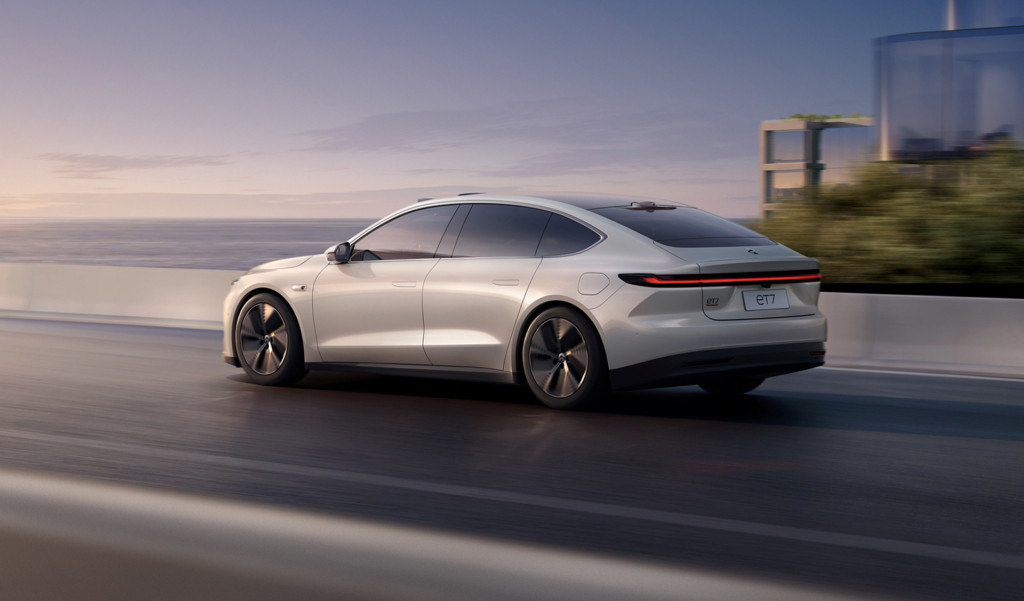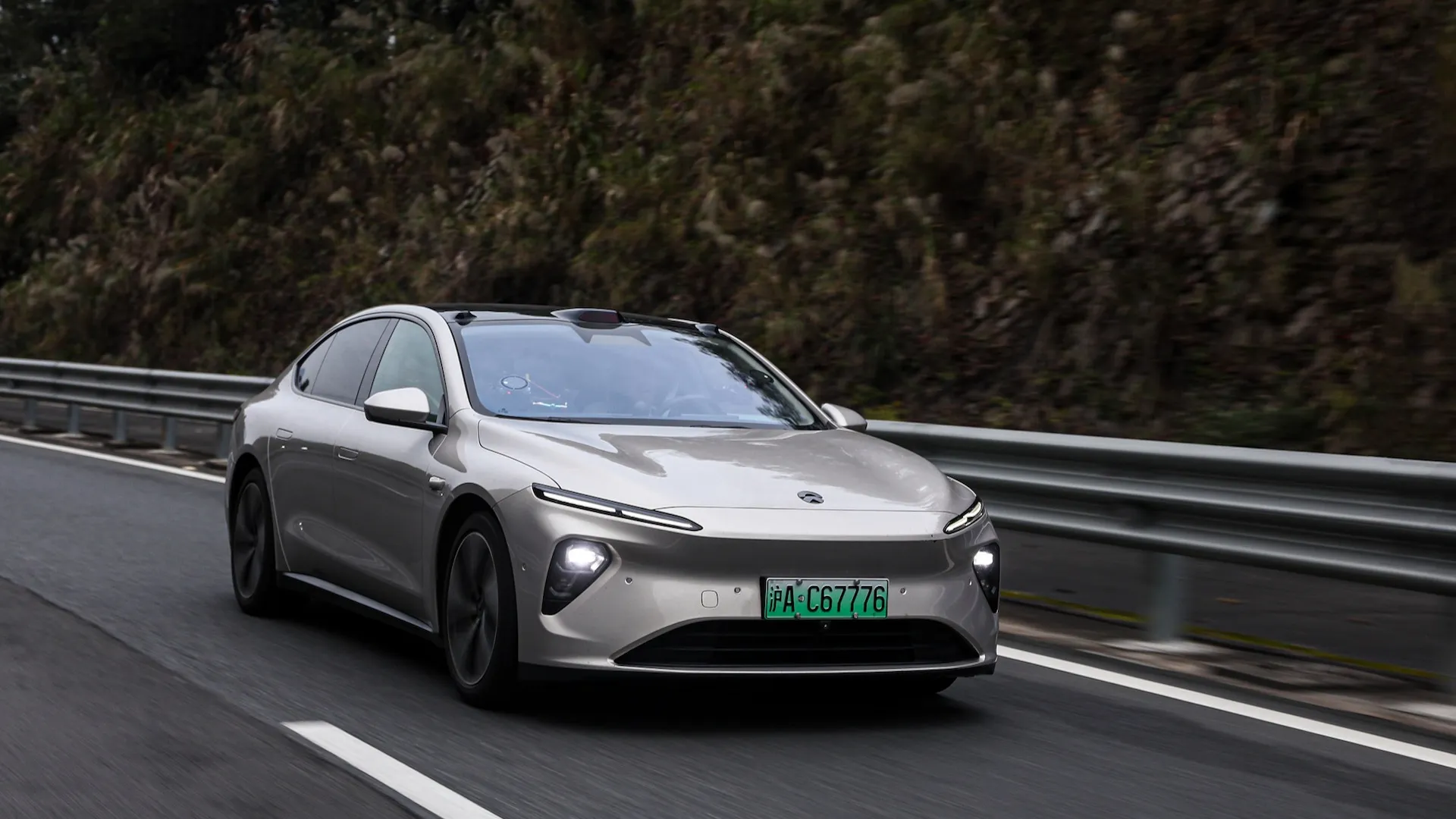A Nio ET7 with the automaker’s new 150-kwh battery pack traveled 650 miles on a single charge, the company claims.
This was achieved by a group of drivers, including Nio founder and CEO William Li, on a 14-hour trip between the Chinese cities of Shanghai and Xiamen, according to a company press release. Nio claims the trip used 97% of the car’s battery capacity.
Many other EVs can go this far—if driven very, very slowly, and without the use of accessories. But Nio claims this was done under real-world conditions, with an average speed of 45 mph. The company posted in-car video to YouTube as documentation.
2022 Nio ET7
Nio announced this big battery pack—the leading edge of its next-gen battery tech—back in January 2021, and it’s finally arriving on the market. It features a cell-to-pack design, with pouch cells that have what the company describes as semi-solid-state chemistry, and an energy density of 360 watt-hours per kilogram. That gives the 150-kwh battery pack the largest capacity and energy density of any mass-produced EV pack in China, Nio claims.
Semi-solid-state cells serve as a bridge to true solid-state tech, and may not have some of the longevity (and even safety) concerns. Polestar announced last month that it plans to put StoreDot’s semi-solid-state batteries to the test. However, semi-solid-state is also a somewhat vague definition which could encompass some existing chemistries.

2022 Nio ET7
Several automakers, including Honda, Nissan, and Toyota, are also working on true solid-state battery cells. Toyota is partnering with Japanese oil company Idemitsu Kosan to get its proprietary cells closer to production. Nissan sees the technology as a potential game-changer that could even eliminate the need for cooling.
Nio is also into its third generation of battery swapping and recently partnered with Volvo and Polestar parent Geely to share the tech. As of December 19, Nio claims to have performed 24 million battery swaps, with 2,322 stations in operation. Most of those are in China, but Nio is now expanding the network into Europe as well.
Read the full article here




